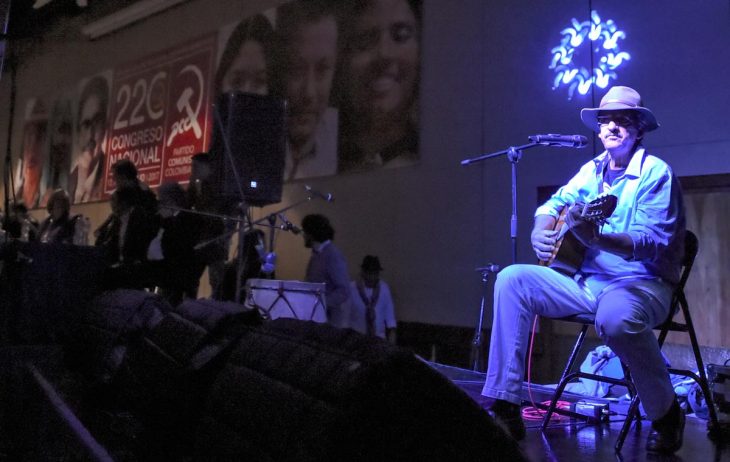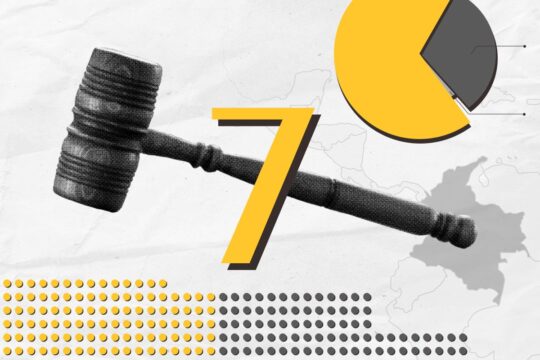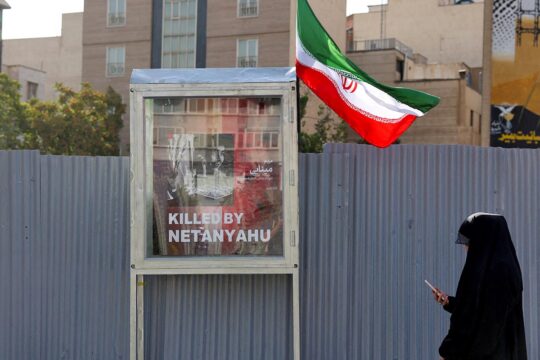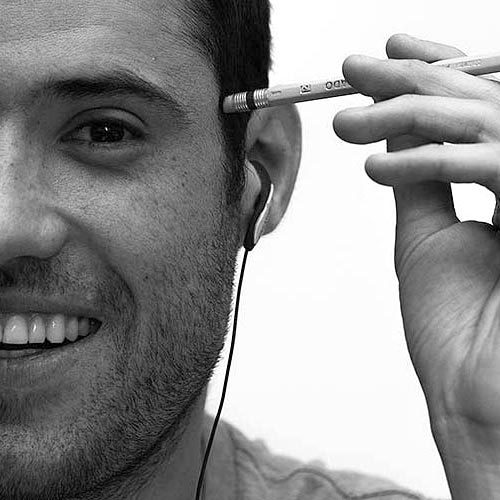On October 27, Guillermo Enrique Torres was elected mayor of Turbaco, an impoverished suburb of Cartagena on Colombia’s Caribbean coast. With this result Torres will become the first member of the former Revolutionary Armed Forces of Colombia (FARC) voted into local office, three years after Colombia’s peace agreement paved the way for this Marxist guerrilla to transition from a life in arms in the country’s jungles to democracy.
His election is a novelty from a political point of view, but it also creates a number of dilemmas for Colombia’s new transitional justice, as Torres is yet to acknowledge his responsibility over past deeds or redress many of the nation’s 8,9 million victims.
FARC’s bard turned mayor
Torres, a 65-year-old political cadre formerly dubbed ‘Julian Conrado’ and better known as FARC’s bard for his songs on topics such as trucks stolen by corrupt politicians, beat his closest rival, the candidate of a well-oiled political structure that has dominated local politics for several years, by 19 percentage points. He did so by campaigning on the streets, donning his guitar and tapping into an anti-establishment sentiment in this sprawling suburb of Cartagena, a historic colonial port visited by millions of foreign tourists every year that is also one of the cities with the worst income inequality in Colombia.
Torres chose not to appear on the ballot accompanied by the red rose that the disarmed FARC chose as the logo of their rookie political party. Instead he was backed by two minority left-wing parties, a decision he made to avoid the stigma still attached to the former guerrilla. And also out of security concerns: 168 former rebels have been murdered since late 2016, according to FARC. Joaquín Gómez, a former commander and peace negotiator who was initially inclined to run for governor of the northern department of La Guajira, finally decided against doing so because of the risks a campaign entails.
Even though FARC’s transition to democracy is one of the cornerstones of the Colombian peace deal, their first results at the ballot box have been far from a success. They obtained less than 0,3% of the votes in congressional elections last year. (Although this is way under the 3% threshold that allocates seats in parliament, the peace deal guaranteed them ten seats over two legislative periods, in exchange for them flexing their electoral muscles and learning how democracy works first-hand.) Last week’s local elections confirmed Colombians’ seeming unwillingness to vote for them: they only got two council members elected in small towns while another FARC member who embraced the peace deal and was backed by other left-wing parties was elected mayor in the southern town of Puerto Caicedo.
The sanctions conundrum
Torres’s election raises a series of questions for Colombia’s brand new transitional justice system.
The foundation of the peace deal is allowing FARC’s transition into democracy in exchange for its members satisfying victims’ rights. Thanks to this formula, former FARC commanders – as well as military who committed war crimes – may receive more lenient sentences for serious and representative crimes, such as murder and kidnapping, if they meet three conditions: acknowledging their responsibility, telling the truth, and personally helping redress victims.
This means that Torres must address what occurred during the conflict before institutions like the Special Jurisdiction for Peace (known locally as the JEP) or the Truth Commission.
The question is when. Should he do it before he enters office on New Year’s Day? Can he do it while on the job? Would he be able to continue governing if sanctioned or does any penalty hinder him from being a public officer?
There is no simple answer to these questions. The new mayor’s case illustrates some of the legal and political debates on sanctions that Colombia has not resolved yet. Even though the Colombian peace accord is the world’s longest at 310 pages, it left the dilemma of how FARC’s political reincorporation can be made compatible with their sanctions unanswered. The Constitutional Court, the country’s top tribunal, clarified that former rebels can hold elected office before being sanctioned, as long as they comply with their obligations of telling the truth, redressing victims and not committing any crimes, and provided the JEP can suspend them if they’re caught doing otherwise. It also pointed out that former FARC members can hold public office after their sanctions, in a country where prison sentences usually come accompanied with lifetime bans on civil service.
There is no certainty, however, on what happens if both happen at the same time. In the end, the Constitutional Court kicked this question back to the magistrates sitting on the special peace tribunal, who are long overdue on deciding what the exact nature of sanctions will look like.
A litmus test for ex-FARC rebels turned politicians
This hazy situation means that Guillermo Torres’s case could become a litmus test of how willing FARC rebels-turned-politicians are to step up in keeping with their transitional justice commitments and how patient Colombians will be with them.
Torres already appeared before the JEP once, during a voluntary deposition in April concerning FARC’s infamous policy of kidnapping civilians for political and economic reasons. He was one of 31 former guerrilla commanders judicially linked to this macro-case – the first one opened by the special tribunal. Torres was a negotiator during the failed peace talks between FARC and President Andrés Pastrana between 1999 and 2002. That was precisely when the former guerrilla made kidnapping – or “economically-motivated retentions” in their jargon – their prime source of illegal financing.
But he is yet to personally acknowledge any responsibility, seek forgiveness or volunteer any redress to victims of his organisation. Even though he announced on social media he would “sing the pure and clean truth” before the JEP, his first testimony took place behind closed doors. Torres didn’t reveal anything about it besides a platitude on love trumping war.
“Julian Conrado [Guillermo Torres] will be the only mayor in the world with a record of international crimes on his shoulders, who hasn’t sought forgiveness and hasn’t redressed victims. Political rights should have been conditioned to fulfilling a symbolic penalty, to repairing and to showing contrition. I cannot see [his election] as a reason for celebration,” said Iván Cancino, a prominent criminal lawyer who has been critical of the peace deal. His criticism is not a solitary one. Polls during the negotiation showed that 77% of Colombians were against immediate political participation for FARC members, even though their arrival to democracy was a requirement for a peace deal to happen.
This dilemma not only applies to Torres, but also to FARC’s ten lawmakers elected last year, given that the party chose to send former rebel commanders to Congress instead of choosing persons who are on the same ideological page as them but do not face criminal inquiries.
In the end, the former FARC’s first – and so far only – political victory in democracy could be marred unless the new mayor of Turbaco decides to own up to his past and to his group’s victims.
THE ROCKY PATH OF THE TRUTH COMMISSION
The past two weeks have been rocky for Colombia’s Truth and Reconciliation Commission (TRC). Two weeks ago, former president Ernesto Samper became the first high-level politician to appear before the TRC, whose mission includes shedding light on many obscure episodes of Colombia’s fifty-year-long conflict. Colombia’s president between 1994 and 1998 discussed a number of issues regarding his presidency in a public conversation with the Commission’s president, Jesuit priest Francisco de Roux.
Samper tried to appear forthcoming, inviting other former presidents to address the TRC and defending truth as a necessary contribution to victims and to national reconciliation. But he noticeably shied away from discussing any of the more controversial aspects of his government, including the judicially proven links between the notorious Cali drug cartel and his 1994 electoral campaign accounting. He also omitted any reflection on what led to the strong uptick in Colombia’s number of victims, which more than tripled during his presidency to over 300,000 per year.
Although Colombia’s TRC is only about to complete the first of its three-year term, this reality may mirror a pattern seen in other countries: soldiers and former combatants often seem more ready to admit responsibility than civilian political leaders.
A week later, tragedy struck the TRC. Alfredo Molano, one of the eleven commissioners and a seasoned journalist whose books document the violence plaguing Colombia’s remotest regions, died of cancer. The remaining ten commissioners must designate his successor over the next few months. In a scenario in which the TRC has been the object of political bickering, this could provide a unique opportunity for the Commission to select a new member who could perhaps allay the fears of businessmen, right-wing politicians and the military, three population groups who have been sceptical of its work on account of a perceived left-wing and academic bias.







